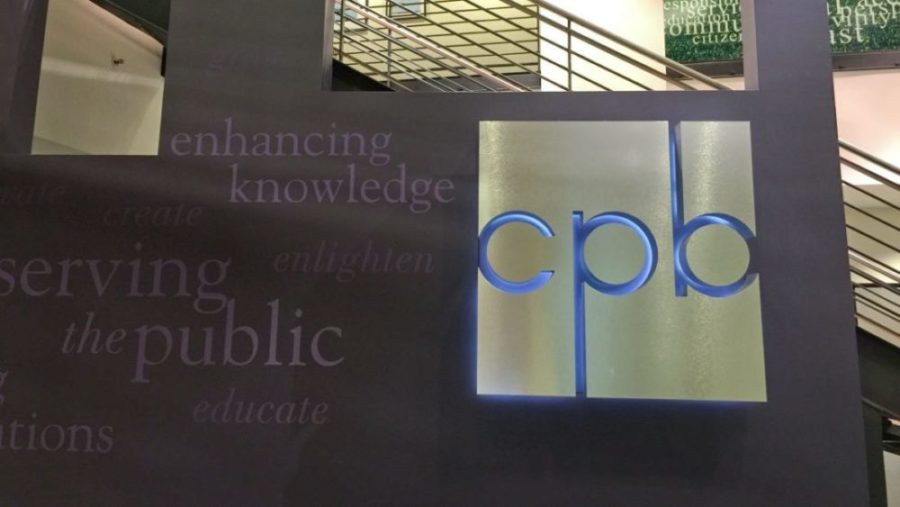Afternoon roundup: Ombud complaints down, filmmaker knocks WETA
• In his annual review of objectivity and balance in CPB-funded programming, CPB Ombudsman Joel Kaplan noted “far fewer complaints directed at public media,” continuing a trend of the past few years. “Whether that is because public media has improved in this area; people have grown tired of complaining about a lack of balance; or there were just not that many controversial stories this year is not clear,” he noted.
Looking back over 2013’s controversies, Kaplan also criticized NPR’s reaction to a lengthy report by its own ombudsman that found fault with an award-winning NPR investigation. As Ombudsman Edward Schumacher-Matos reviewed the three-part series about South Dakota’s foster-care system for Native American children, he “took the unusual step of re-reporting the story,” Kaplan wrote. NPR execs called the ombud’s report “deeply flawed”and said little would be gained “from a point-by-point response to his claims.” However, Kaplan countered, “That is exactly what NPR should have done.”

A photograph from the files of the Mississippi Sovereignty Commission, the subject of the documentary Spies of Mississippi. (Photo: ITVS)
• The filmmaker behind Spies of Mississippi, premiering Monday on Independent Lens, has written an open letter to WETA in suburban Washington, D.C., asking why the TV station will not be airing her documentary or other Black History Month content in primetime.
“Multiple Emmy Award-winning strands POV and Independent Lens have curated a series of important programs of depth and substance pertaining to Black History Month and yet your audience must hunt to find them,” wrote director Dawn Porter. “If stations such as WETA are going to bury the programming that seeks to share untold stories of underrepresented groups, then who CAN we count on to support this mission?”
Porter’s doc examines the Mississippi State Sovereignty Commission, created to preserve segregation in the 1950s, which spied on 87,000 Americans over a decade.
UPDATE: WETA spokesperson Kate Kelly told Current the station runs Independent Lens and the other pubTV doc showcase, POV, at 11 p.m. Saturdays, “with a strong lead-in” from the popular Britcom Doc Martin. Kelly said WETA is airing 21 shows over 39 hours about black history throughout February. Some shows are in the Independent Lens slot, while others will run between 11 a.m. and 5 p.m. on weekends. “We’re proud of the job we’re doing” honoring the month, which is an “annual tradition” for WETA, she said.
• The Atlantic kicked off a three-week look into the American Archive of Public Broadcasting Friday, highlighting one clip per day, according to Rebecca Rosen, a senior associate editor. First up: Edward R. Murrow speaking the first words as WNDT (later WNET), the first pubTV station in the New York metropolitan area, went on the air. A classic.
• A local public library is helping save volunteer-run WYOU Community Television in Madison, Wisc., reports the Daily Page. The PEG (public, educational, government access) station, on the air for nearly 40 years, hit a funding crisis in 2010 when the state discontinued funding for PEG channels. WYOU volunteers are now working out of a media lab in Madison’s new Central Library, which WYOU Board President Barbara Vedder calls “a beautiful room, all this top-notch equipment, state-of-the-art cameras, computers, editing software, and a green screen . . . they have everything that’s needed.”






[…] WETA responded by saying that yes, they "are offering over 39 hours (20 different series) of programming during Black History Month," along with a link showing the programming it has in mind–most of which will be airing during weekday afternoons or late at night. "We're proud of the job we're doing" on Black History Month, WETA spokesperson Kate Kelly told Current (2/7/14) […]
[…] WETA responded by saying that yes, they “are offering over 39 hours (20 different series) of programming during Black History Month,” along with a link showing the programming it has in mind–most of which will be airing during weekday afternoons or late at night. “We’re proud of the job we’re doing” on Black History Month, WETA spokesperson Kate Kelly told Current (2/7/14) […]